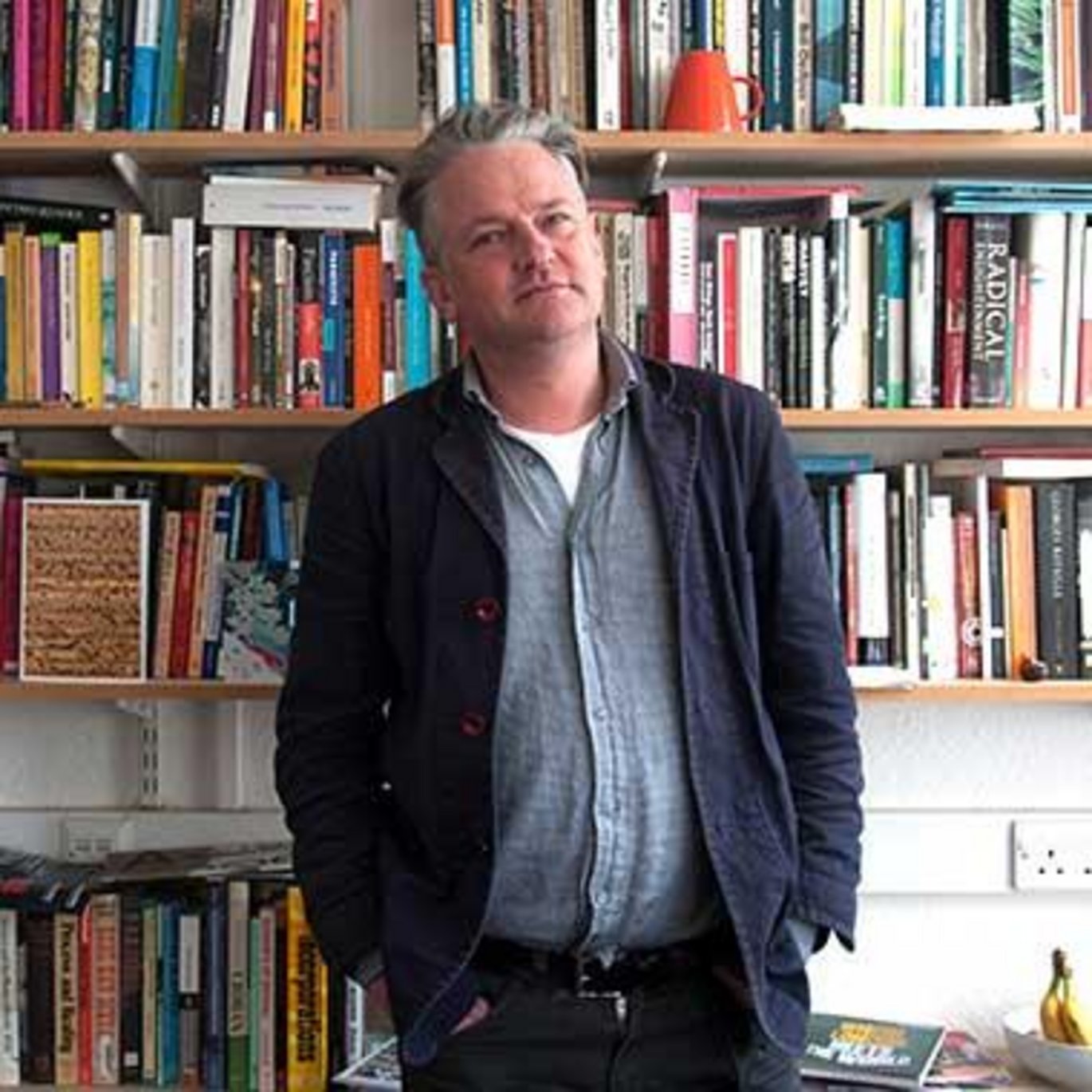Matthew Fuller – 2nd DARC Distinguished Guest Lecture
Professor Matthew Fuller joins us in Aarhus in November to give the second annual DARC Distinguished Lecture: “Art as Metadiscipline”.

Time: Friday 1 November 2024, at 14:15-16:00.
Location: Kunsthal Aarhus, J. M. Mørks Gade 13, 8000 Aarhus C
We are excited to announce that pioneer of software studies, cultural theorist Matthew Fuller, is giving the second Digital Aesthetics Distinguished Lecture. Since the early 2000s, Fuller’s work has been a central reference point for us in Aarhus, both at the Digital Aesthetics Research Centre and the overall program of Digital Design. Fuller’s role was crucial in helping the international field of software studies take its current shape and while also maintaining a deep relation to art as methodological inquiry within computational culture. Fuller’s topic for the lecture on November 1st is thus very fitting: “Art as Metadiscipline”. It both taps into current methodological discussions in art, media, and digital research and links well to a short text he published in 2006 as part of the DARC publishing series: Softness: Interrogability; General Intellect; Art Methodologies in Software. Importantly, in addition to his own scholarly and creative work (such as part of the artist group I/O/D alongside many more recent collaborations with artists, architects, and designers), Fuller has constantly contributed to collective and collegial practice in digital culture research, including being one of the founding editors of the open access journal Computational Culture.
The DARC annual lectures celebrate internationally leading artists and theorists whose work has made a significant contribution to digital culture scholarship with a special emphasis on art, design, and experimental practices. The inaugural lecture of series was given in 2023 by pioneer of net.art Olia LIaliana who talked about “Beautiful Zeroes and Ugly Ones”.
After Fuller’s talk we will celebrate at the Kunsthal Aarhus with the traditional Friday bar.
Participation is free, but we recommend securing a seat on Billeto.
Fuller’s visit and the annual Distinguished Speakers series are organized by the Digital Aesthetics Research Centre. It is supported by Kunsthal Aarhus and the Cultures and Practices of Digital Technologies research program as well as the department of Digital Design and Information Studies at Aarhus University.
Art as Metadiscipline
Matthew Fuller
Twenty-first century artists have increasingly worked on the problems and the modes of enquiry of other disciplines and fields. The findings, styles of thought, and habits of operation and conduct of the sciences, sociology, mathematics, literature, governance and education, amongst others, have become resources for reworking and expanding. They are used to probe questions of power, imagination and invention, but also to rework the condition of the aesthetic more broadly.
This expansion of art has multiple roots. Some are to do with the changing terrain of post-conceptual art and its multiple tendencies in the context of the changing condition of the the disciplines more broadly, including developments such as the new humanities or posthumanities. Other factors include an engagement with sciences and the adoption and alteration of their working methods or their interpretation at a tangent to more traditional forms of interdisciplinarity. This includes approaches ranging from treating disciplines and their objects as “found objects” or elaborating techniques of mutual interest. Others rework the idea of art into a process of learning and becoming in education or in forms of political and ecological direct action or speculation. Importantly, digital media and computing provide both a conduit and terrain for these shifts, as well as a key subject of and means for art's widening reformulation.
These tendencies suggest that art is emerging as something that can be called a meta-discipline: a mode of work whose operation includes both working in other disciplines and acting upon them. Mathematics and philosophy have been key meta-disciplines for a long period. They work in and on both the conditions of possibility and the working matters of other fields.
Art has historically been allocated the role of working on sensation and feeling via representation. In the present, art also works on concepts, institutions, techniques and information, including the workings of these prior-metadisciplines. This talk will examine aspects of the genealogy and potential of this tendency.
Bio
Matthew Fuller is a cultural theorist who works on art, science, politics and aesthetics. His books include How to Sleep: The Art, Biology and Culture of Unconsciousness (Bloomsbury 2018), How to Be a Geek: Essays on the Culture of Software (Polity 2017), with Olga Goriunova, Bleak Joys: Aesthetics of Ecology and Impossibility (Minnesota 2019) and with Eyal Weizman, Investigative Aesthetics: Conflicts and Commons in the Politics of Truth (Verso 2021). He is a member of the editorial collective of ‘Computational Culture, a journal of software studies’ http://www.computationalculture.net/. As an artist he has worked with groups such as I/O/D and Mongrel as well as other collaborative and independent projects. He is Professor of Cultural Studies at Goldsmiths, University of London.
